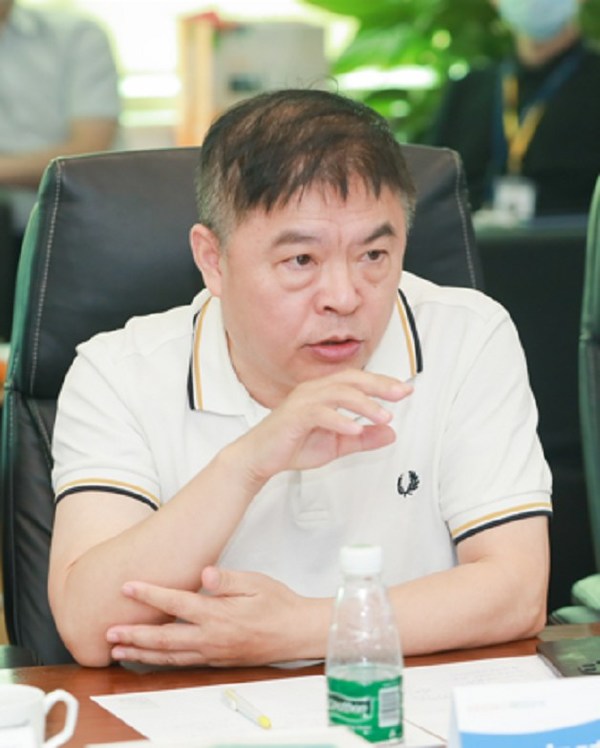 |
GUANGZHOU, China, Sept. 14, 2021 /PRNewswire/ -- Recently, TUV Rheinland awarded Kingfa Sci. & Tech. Co., Ltd. (hereinafter referred to as "Kingfa") the world's first Ocean Bound Plastic (OBP) Recycled Content certificate for its halogen-free flame-retardant reinforced polybutylene terephthalate (PBT) (RELOY-R35G30S13 BK019).
Weimin Fang, Vice President of TUV Rheinland Greater China System; Tina Jiang, Managing Director of TUV Rheinland Guangdong; Vincent Chen, General Manager of TUV Rheinland Greater China Systems; Fallight Xu, Regional Head of Corporate Social Responsibility, TUV Rheinland Greater China; Li Jianjun, Director and Chief Strategy Officer of Kingfa and Director of the Institute of Sustainable Development Technology; Ye Nanbiao, Deputy General Manager of the Group's Technology System; Peng Zhi, General Manager of the Sustainable Development Products Department; and Wu Bo, General Manager of the National Advanced Polymer Materials Innovation Center, attended the award ceremony for the Ocean Bound Plastic (OBP) Recycled Content certificate and the signing ceremony for a strategic cooperation framework agreement between TUV Rheinland and Kingfa.
The Ocean Bound Plastic (OBP) Recycled Content certificate is awarded based on a scientific verification of the sources of OBP and its content ratio in specific products. TUV Rhineland's technical experts review the entire process of collection, sorting, washing, pretreatment, high-quality modification and recycling, and transportation by manufacturers, recyclers, and collectors, and awards this certificate to enterprises that have passed the verification.
In his speech, Weimin Fang said that TUV Rheinland's certification services are based on internationally accepted evaluation criteria that ensure data authenticity and accuracy. The Ocean Bound Plastic (OBP) Recycled Content certificate awarded to Kingfa is based on two standards—EN 15343-2007 and ISO14021—for source traceability, chain supervision, and content verification of OBP. This certification signifies that Kingfa has reached internationally accepted standards in the use of OBP materials, ensuring that the products it provides meet consistently high standards. TUV Rheinland will join hands with Kingfa for in-depth cooperation in the sustainability business sector and fully support its production of environmentally friendly high-quality recycled plastic products, to achieve the goal of low-carbon transformation.
During discussions at the event, Li Jianjun said, "Kingfa is step-by-step practicing social responsibility to eliminate marine plastic waste and protect marine biodiversity by providing brand customers with a series of material solutions and products featuring Ocean Bound Plastic (OBP) Content. Thanks to TUV Rheinland's strict audit standards and rich expertise, Kingfa has become the world's first advanced materials enterprise to obtain TUV Rheinland's Ocean Bound Plastic (OBP) Recycled Content verification. This certificate enhances the credibility and sustainability of our products containing OBP. The two parties expect to rapidly establish global, full-chain in-depth strategic cooperation in terms of sustainability."

Li Jianjun, Director and Chief Strategy Officer of Kingfa and Director of the Institute of Sustainable Development Technology
Global environmental problems are becoming increasingly severe, and more and more customers are factoring in the impact of materials on the environment in their procurement decisions. The application of waste OBP to environmentally friendly, high-quality recycled plastic products has become a new trend. The Ocean Bound Plastic (OBP) Recycled Content certificate helps increase market and consumer confidence in using recycled plastic products, and makes products more competitive in the market. In addition, the prevention of marine plastic waste pollution, the protection of marine biodiversity, and the use of OBP in turning low-value plastic waste into high-quality plastic, making the best use of plastic, will have far-reaching significance in achieving peak carbon dioxide emissions and carbon neutrality goals.